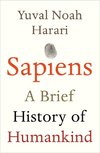
-
 Anglický jazyk
Anglický jazyk
Economic history
Autor: Source: Wikipedia
Source: Wikipedia. Pages: 201. Chapters: Feudalism, Hanseatic League, Gold standard, Price revolution, Division of labour, Guild, Four Asian Tigers, Commercial Revolution, History of economic thought, Eastern Bloc economies, Currency war, Bretton Woods system,... Viac o knihe
Na objednávku
37.71 €
bežná cena: 41.90 €
O knihe
Source: Wikipedia. Pages: 201. Chapters: Feudalism, Hanseatic League, Gold standard, Price revolution, Division of labour, Guild, Four Asian Tigers, Commercial Revolution, History of economic thought, Eastern Bloc economies, Currency war, Bretton Woods system, Land reform, History of capitalism, History of silk, Jim Crow economy, Long Depression, Great Divergence, Early history of private equity, History of money, Fordism, School of Salamanca, North American fur trade, Business history, History of fair trade, Efficiency Movement, Compound interest, Economic history of Europe, Economic history of Africa, Argentine Currency Board, PIGS, Timeline of international trade, Neomercantilism, Corvée, Next Eleven, Bike boom, Feudalism in England, Rostovian take-off model, Sexual Division of Labor, Economic history of the world, Putting-out system, Early 2000s recession, Cliodynamics, Cliometrics, Bank of West Africa, Journeyman years, Jean Fourastié, Baltic Tiger, Grain supply to the city of Rome, Exchange Alley, Craft, Sale of UK gold reserves, 1999-2002, G20 developing nations, Manfred Pohl, The European Association for Banking and Financial History, Price system, Restatement of Policy on Germany, Auxology, Tripartite Agreement of 1936, Silver rush, Trillion dollar club, Social savings, Chatham Chest, Tatra Tiger, Smithsonian Agreement, Tenant-in-chief, Gold bloc, Palace economy, Silent trade, Economic History Society, The Journal of Economic History, G33, Family economy, Agrarian society, Explorations in Economic History, Cliometrica, Inside contracting, Gold Points, Corrody, Dromography, Wallpaper tax, International Monetary Conferences, The Imperialism of Free Trade, Colonial commodity fiat, List of tariffs. Excerpt: The history of economic thought deals with different thinkers and theories in the subject that became political economy and economics from the ancient world to the present day. It encompasses many disparate schools of economic thought. Greek writers such as the philosopher Aristotle examined ideas about the "art" of wealth acquisition and questioned whether property is best left in private or public hands. In medieval times, scholars such as Thomas Aquinas argued that it was a moral obligation of businesses to sell goods at a just price. British philosopher Adam Smith is often cited as the father of modern economics for his treatise The Wealth of Nations (1776). His ideas built upon a considerable body of work from predecessors in the eighteenth century particularly the Physiocrats. His book appeared on the eve of the Industrial Revolution with associated major changes in the economy. Smith's successors included such classical economists as the Rev. Thomas Malthus, Jean-Baptiste Say, David Ricardo, and John Stuart Mill. They examined ways the landed, capitalist and labouring classes produced and distributed national output and modeled the effects of population and international trade. In London, Karl Marx castigated the capitalist system, which he described as exploitative and alienating. From about 1870, neoclassical economics attempted to erect a positive, mathematical and scientifically grounded field above normative politics. After the wars of the early twentieth century, John Maynard Keynes led a reaction against what has been described as governmental abstention from economic affairs, advocating interventionist fiscal policy to stimulate economic demand and growth. With a world divided between the capitalist first world, t...
- Vydavateľstvo: Books LLC, Reference Series
- Rok vydania: 2022
- Formát: Paperback
- Rozmer: 246 x 189 mm
- Jazyk: Anglický jazyk
- ISBN: 9781157634362






 Ruský jazyk
Ruský jazyk 





